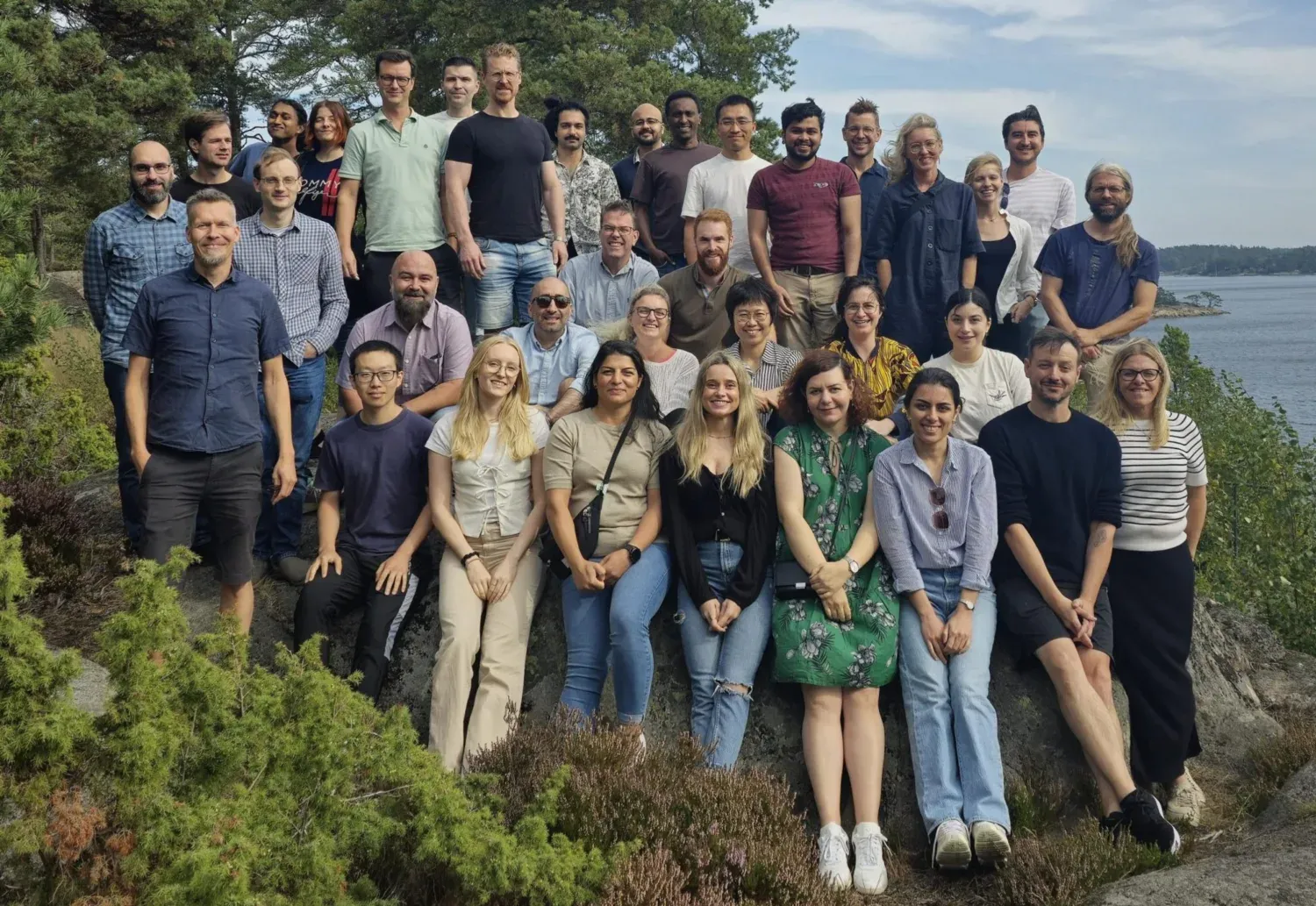Our research
Proteomics is a collective name of several techniques and methods for global analysis of proteins in biological samples such as cells and tissues. Proteins are vital for any living organism and are involved in virtually all biological functions from accelerating chemical reactions as enzymes to cellular signaling, and serve as hormonal signaling molecules, providing recognition sites for the immune system, and serving as building blocks responsible for maintaining the cell's form and structure.
The Cancer Proteomics Mass Spectrometry group headed by Professor Janne Lehtiö is continuously developing mass spectrometry-based methods to improve proteome analysis. We use omics methods to obtain detailed pictures of the molecular phenotype of cancer cells, tumors and plasma proteome on systems level. One fundamental question we currently address is how cancer genome aberrations influence the functional proteome. This emerging field is known as cancer proteogenomics (Branca, Nature Methods 2014; Zhu elt al., Mol. Cell. Prot. 2014; Boekel et al., Nature Biotechnol 2015; Zhu et al., Nature Commun., 2018). With this method we can also detect cancer cell specific protein variants, which open up the possibility to use proteogenomics to discover novel immunotherapy targets and to define predictive biomarkers for immunotherapy.
Another focus of ours is to gain knowledge of how targeted cancer drugs affect the proteome and how this information can be used to select most effective treatment for an individual patient. Our efforts are currently focused on lung cancer (Orre et al., Molecular Cell 2019, Zhu et al. Mol. Cell. Proteomics 2020, Arslan et al., Nature Protocols 2022), breast cancer (Johansson, Nature Commun 2013; Nature Commun 2019; Johansson, Clinical Proteomics 2015) and leukemia (Yang, Nature Commun 2019).
Our group are encouraging team science and embraces diversity. We are engaged in translational research within our group and via large collaborative networks, in Sweden and globally, from tech development to implementation of omics in clinical use (Tamborero D, Nature Medicine 2020).
Infrastructure
Mass spectrometry instrumentation
We use cutting edge mass spectrometry and chromatography instrumentation for our research. We have also developed the High Resolution Isoelectric Focusing (Branca et al., Nature Methods, 2014) for pre-fractionation to perform in-depth proteomics.
Instrumentation:
Mass spectrometers
- Two MS Orbitrap Astral, Thermo Scientific
- Two MS Orbitrap HF Q Exactive, Thermo Scientific
- MS timsTOF Pro 2, Bruker
- MS timsTOF HT, Bruker
- MS timsTOF SCP, Bruker
- MS Exploris 480, Thermo Scientific
- Acquity Premier Offline UPLC, Waters
Peptide separation technologies
- 1 HiRIEF (High Resolution Isoelectric Focusing)
- 1 Liquid Chromatography (nanoUPLC/HPLC/FPLC)
Robotic sample preparation
- Biomek i7 (Beckman Coulter) robot for automated sample preparation
- 1 Ettan Digester, GE Healthcare Life Science
Doctoral courses
We arrange two doctoral courses every year:
"Proteomics by Mass Spectrometry: When and How" (link to course syllabus) given in November. Course responsible: Henrik Johansson, (henrik.johansson@ki.se)
"Omics data analysis: From quantitative data to biological information" (link to course syllabus) given in November/December. Course responsible: Haris Babačić (haris.babacic@ki.se) and Ioannis Siavelis (ioannis.siavelis@ki.se)

